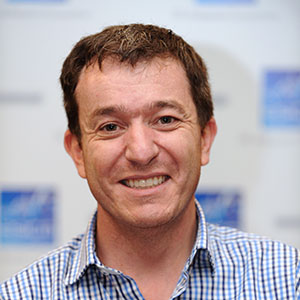Study options
- Starting in
- September 2025
- Location
- Distance Learning
- Fees
- Home: £12,850
Overseas: £36,250
EU/EEA/Swiss students
What you'll study
Perioperative medicine is a rapidly growing and innovative field with increasing importance for the delivery of healthcare in the surgical setting. Advances in medicine, surgery, and critical care have demonstrated the need to have a holistic overview of multiple areas, and where marginal gains can lead to better outcomes and experiences for patients.
The course will be delivered by the Critical Care and Perioperative Medicine Research Group (CCPMG) at Queen Mary University of London, who are a world leading research group in perioperative medicine, and will aim to train the future perioperative practitioners to deliver better healthcare and promote innovation and research in the field.
Perioperative medicine is a new and exciting specialty designed to improve outcomes and experiences in high-risk patients undergoing surgery. Trainee doctors, specialist nurses and allied health professionals play a key role in the delivery of safe and effective patient care within the specialty which is highly technical, and has a rapidly evolving evidence base.
This programme for clinicians, senior nurses and allied health professionals working in perioperative medicine is intended to provide you with a thorough grounding in the discipline together with the tools to maintain your knowledge base through a course of advanced, specialist instruction. The programme is designed to ensure that you acquire the theoretical understanding and skills to advance and promote knowledge in the specialty, as well as develop your leadership skills.
The clinicians and senior nurses working within the Critical Care and Perioperative Medicine Research Group at Queen Mary have a strong track record of leading, developing and delivering patient care and research within this field. The programme will also draw on the knowledge and expertise of international expert clinicians and academics to create a faculty that is ideally equipped to deliver a comprehensive and exciting course.
This MSc programme provides the opportunity for you to obtain a higher degree whilst in either full-time or part-time employment.
Structure
Eight compulsory taught modules plus dissertation related to perioperative medicine
Compulsory/Core modules
Research and Audit Methodology
This module will cover the basics and adanved care of patients after surgery. It will focus on the places where patients are cared for (recovery, wards, monitored units and high dependency units). It will also discuss the personnel needed and the equipment needed for monitoring and interventions required to provide high quality surgical care.
This module will cover the specific physiological impacts of the variety of chronic long-term medical conditions that affect patients undergoing major surgery. These impacts will be considered pre-, intra- and post operatively. The pharmacotherapeutic profiles of such patients will be covered (including the importance of compliance), and the importance of managing this over the peri-operative period. Lastly the impact of these diseases on physical function and the implications for post-operative recovery will be covered. This module will additionally cover the peri-operative care of obstetric and paediatric patients, and those undergoing emergency surgery (including trauma).
This module will describe the 10 different surgical specialties and the common operations for each. It will then discuss the anatomical and physiological considerations relevant to each of the specialties and how these impact on the car around the time of surgery, from preoperative assessment to intraoperative care, anaesthesia, resuscitation and postoperative care. It will also describe common postoperative complications and how to manage them.
In this module the student will gain experience of the clinical application of perioperative medicine relevant to the student¿s discipline and developing career (i.e. medicine, nursing, AHP etc) through a series of guided online and distance learning activities. It will also focus on the processes required for qualitative improvement to improve surgical outcomes.
This module will allow students to develop specialist knowledge and insight on a topic of their choice, related to perioperative medicine. Students may choose to organise their dissertation in the form of a narrative review, systematic review, guideline development, research project, audit, or quality assurance project. Students will develop the ability to synthesise and analyse information and data, to breakdown complex issues, and to compare and contrast alternative view points. This will allow an appraisal and judgement of the direction of the field informed by latest developments and opinion. Students will be supported by regular supervisory contact with a tutor with expertise in their field of research interest. Particular emphasis will be placed on developing the students' ability to disseminate knowledge at a professional level, with a view toward publication.
Assessment
- 67% Modules
- 33% Dissertation
You will receive continuous assessment in your taught modules.
Each module will be assessed on the basis of written work, examinations and presentations.
Dissertation
You will complete a supervised research dissertation of approximately 15,000 words
Teaching
You will learn by means of a variety of academic activities, including lectures, seminars and tutorials. Some of the taught material may be delivered by podcast with, where relevant, linked paper-based reading material.
You will have an Academic Adviser who will guide you in both academic and pastoral matters throughout your studies.
Where you'll learn
Facilities
- The William Harvey Research Institute offers state-of-the-art core facilities, including a Genome Centre, a flow cytometry and cell sorting station, and in vivo imaging facilities
- Access to a flexible online e-learning platform (QMPlus) which allows you to discuss and exchange ideas, share knowledge as well as access all lecture sessions in your own time
- Access to video and audio recordings of all lectures and other online resources
- Access to online library facilities and reading materials (journals, books and databases)
- Access to our campus facilities if you decide to visit at any point during your course
- Watch our video to discover online study at Queen Mary
About the Institute
William Harvey Research Institute
The William Harvey Research Institute (WHRI) places a high value upon training the next generation of researchers. We are part of the Faculty of Medicine and Dentistry at Queen Mary University of London, which is ranked joint seventh in the UK for the quality of our research (REF 2021).
Our primary research focus and excellence lies in our cardiovascular, inflammation and endocrine research themes. In addition, we achieve international excellence in critical care and perioperative medicine research. We aim to combine talents from different disciplines such as genomics, cell biology, and pharmacology, with translational bench-to-patient studies and large-scale clinical trials.
We are currently the largest pharmacological research institute in the UK University sector, and one of the largest in Europe. The Centre employs 530 clinicians and scientists from 45 countries.
Career paths
Perioperative medicine is a rapidly growing and innovative field with increasing importance for the delivery of healthcare in the surgical setting. Advances in medicine, surgery, and critical care have demonstrated the need to have a holistic overview of multiple areas, and where marginal gains can lead to better outcomes and experiences for patients.
This programme, aimed at healthcare professionals working to deliver care within the perioperative pathway such as nurses, doctors, and operating department nurses or assistants, aims to train the future perioperative practitioners to deliver better healthcare and promote innovation, research and leadership in the field.
- 93% of WHRI graduates are in employment or further study (2021/22)
- 89% of WHRI graduates in employment or study are in highly skilled work or graduate study (2021/22)
Fees and funding
Part-time study
January 2026 | 2 years
- Home: £6,350
- Overseas: £17,250
EU/EEA/Swiss students
Part-time study
September 2025 | 2 years
- Home: £6,450
- Overseas: £18,200
EU/EEA/Swiss students
Queen Mary alumni can get a £1000, 10% or 20% discount on their fees depending on the programme of study. Find out more about the Alumni Loyalty Award
Funding
There are a number of ways you can fund your postgraduate degree.
- Scholarships and bursaries
- Postgraduate loans (UK students)
- Country-specific scholarships for international students
Our Advice and Counselling service offers specialist support on financial issues, which you can access as soon as you apply for a place at Queen Mary. Before you apply, you can access our funding guides and advice on managing your money:
Entry requirements
UK
Degree requirements
A 2:2 or above at undergraduate level in Nursing, Physiotherapy or other related allied health professional degrees, or a Medical or Dental degree (non-UK medical degrees marked on a grading scale must be equivalent to UK 2:2 degree).
Also, at least one year experience working in a hospital as a health professional is essential.
Find out more about how to apply for our postgraduate taught courses.
International
English language requirements
The English language requirements for our programmes are indicated by English bands, and therefore the specific test and score acceptable is based on the band assigned to the academic department within which your chosen course of study is administered. Note that for some academic departments there are programmes with non-standard English language requirements.
The English Language requirements for entry to postgraduate taught and research programmes in the William Harvey Research Institute falls within the following English band:
Band 4: IELTS (Academic) minimum score 6.5 overall with 6.0 in each of Writing, Listening, Reading and Speaking
Please note, there are some postgraduate programmes with non-standard English language requirements in this Institute.
We accept a range of English tests and qualifications categorised in our English bands for you to demonstrate your level of English Language proficiency. See all accepted English tests that we deem equivalent to these IELTS scores.
Visas and immigration
Find out how to apply for a student visa.

